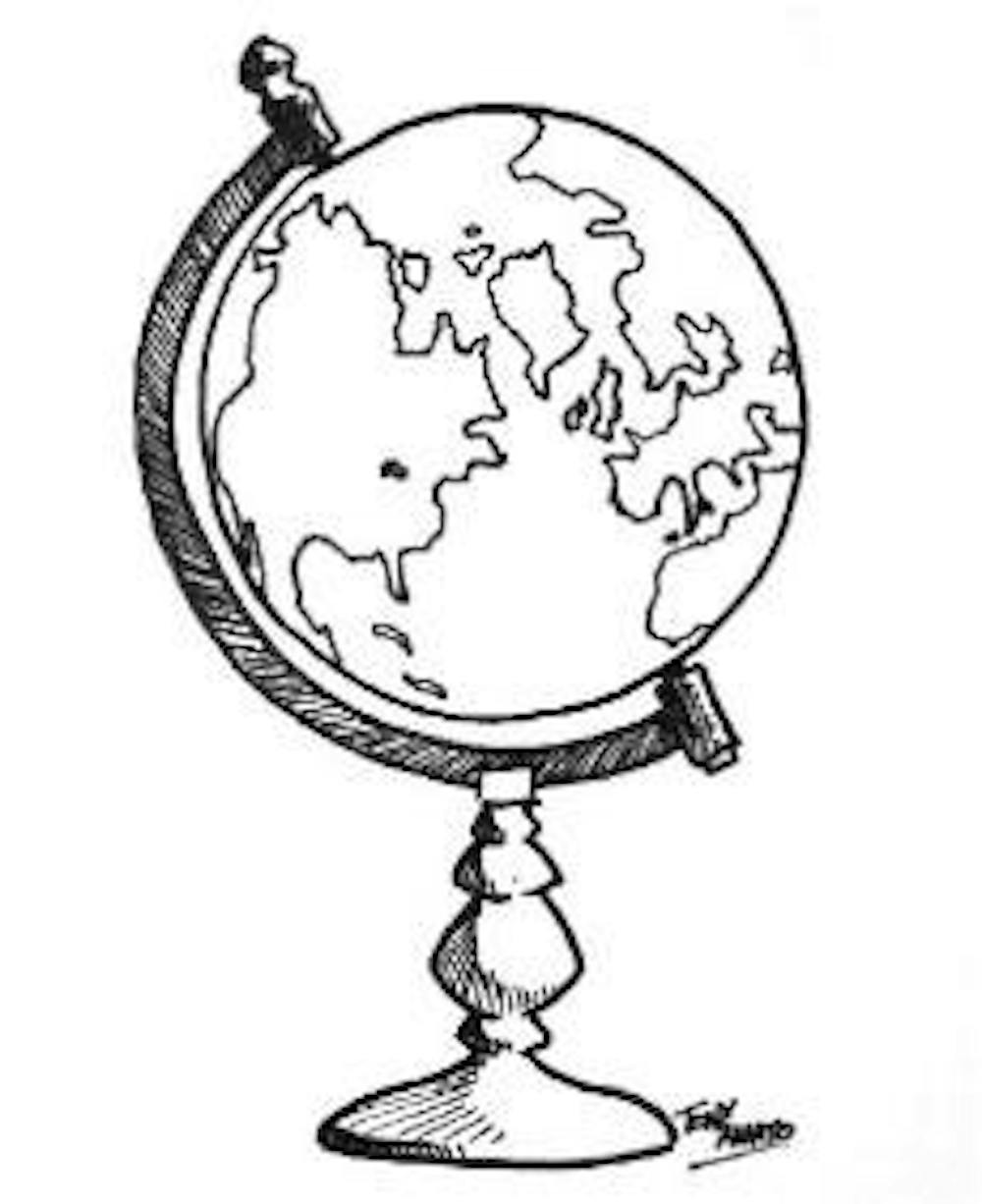
(tony amato)
I grew up in middle-class suburban America. My childhood has not been extravagant, but has not been boring either. And I find myself at a crossroads. As a college student who expected a lot more out of college with regards to diversity, activism and general intellectual stimulation, I am floundering amid the uniformity of the culture.
I know two things: I love travel and I love a challenge. I do not feel as if I am growing unless I am putting myself in uncomfortable situations. I want to constantly ask about the state of the world. One question that persistently boggles me is why more attention is paid to atrocities in certain parts of the world while ignored in others. This is especially true with regards to political issues in Africa, which was brought to light by Nick Clooney's Jan. 31 lecture.
People think I am crazy for wanting to travel to and study issues in Africa. The question I pose to them is, "Why aren't you interested?" Whether it is a moral agenda I alone have or insanity, something inside me begs to ask why more attention isn't being paid to the genocide, civil wars, poverty, racism, epidemics and violence that occurs throughout an entire continent.
Some economists have proposed models and suggested that with technological development, some African nations could become developing countries. Yet the technological development is based on, among other factors, education and entrepreneurship.
African nations do not have the historical basis nor the economic groundwork for education. There is a need for educators, school buildings, transportation and communication in order for schools to exist. In addition, culturally sensitive curriculum needs to be created.
Entrepreneurship won't likely occur because of brain drain. Anyone smart enough to earn a college degree is more likely to get a stable, better paying job outside Africa. All of the innovators, the movers and shakers, the would-be leaders, are leaving en masse.
While this happens, the northern hemisphere sits by idly. Yes, United Nations troops are sent to guard borders occasionally, volunteers travel in small packs to aid refugees and money is sent via charities.
However, Americans and Europeans aren't troubled daily by the news of political strife in any African region. Blame it on racism, sexism, any -ism, but the point is that something needs to change in the mind-set of our culture.
By change, I don't mean that students shed a tear when Nick Clooney comes to speak about his trip to Darfur and then walk away feeling worldlier because of having heard it.
I mean that this generation, the generation who can mobilize in less than 24 hours to boycott the addition of News Feed on Facebook - to speak to Miami University's student body specifically, the generation that can organize petitions and town hall meetings at the mention of prohibiting drinking games - must realize on a higher level the responsibility it needs to bear.
Enjoy what you're reading?
Signup for our newsletter
This is a generation that needs to pay attention to its moral obligations, both in terms of domestic and foreign politics. Whether it's a dollar donation, a time donation or using celebrity status (like George Clooney) - attracting attention to the problem is the first step to a solution. Until we do this, there will be a weight on our shoulders.
Perhaps it is just my personal opinion, but I have developed a belief that it is each generation's obligation and purpose to attempt to leave the world a better place than they found it.
Even if we don't succeed in fixing everything, it is our duty to pay attention to issues throughout the world. It is our purpose to strive for improvement. Eventually, with enough momentum, we may have a chance at doing something worthwhile in the world.
I don't mean to criticize the speech or the students who attended it. I commend Clooney on all his work. In fact, I was among those who cried after his story of a mother who, running from the Janjaweed militia, could no longer hear her 6-year-old son's voice calling after her. I automatically thought of my niece, who is the same age as that young boy and I didn't want to imagine going through even a fraction of what that mother faced.
In returning to our suburban lifestyles, our SUVs, North Face jackets and our families, this subject may not weigh heavily on our consciousness. But perhaps someday, work such as Clooney's documentary will provide enough momentum for developed countries to play a harder line on lesser developed countries, especially those with governments providing financial backing and ammunition for a rebel army to wreak havoc upon its citizens.




